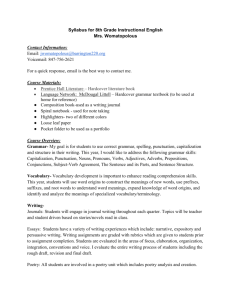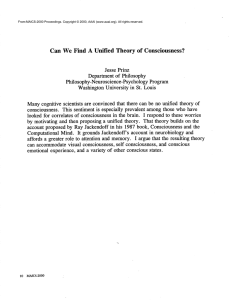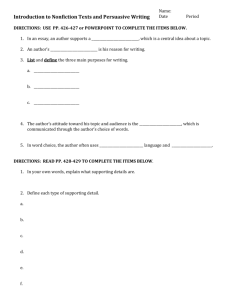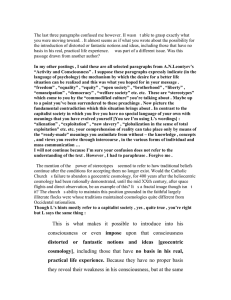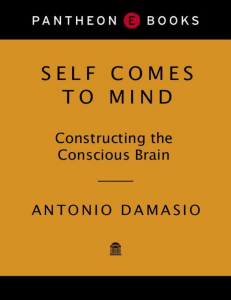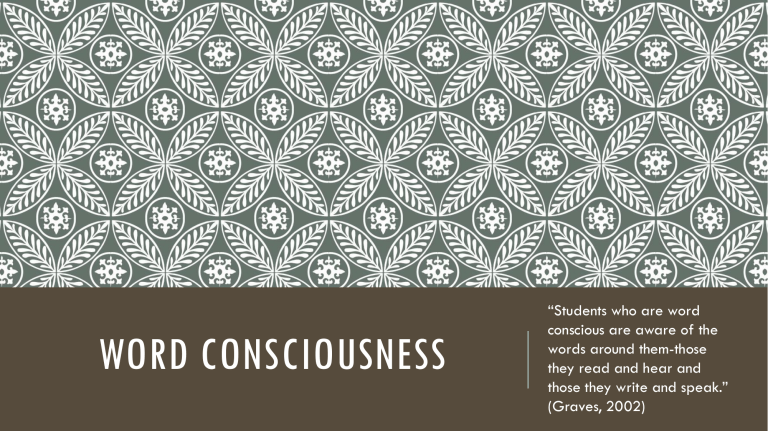
WORD CONSCIOUSNESS “Students who are word conscious are aware of the words around them-those they read and hear and those they write and speak.” (Graves, 2002) HOW DO WE FOSTER WORD CONSCIOUSNESS? Teachers encourage adept diction-the skillful use of words in speech and writing Teachers deliberately use skillful language Mentor Texts as models Creating a word rich classroom environment Teaching language categories and word meanings Exposing students to texts rich in figurative language WORD PLAY Word play can stimulate student’s natural curiosity about language, improve vocabulary development and reading, reveal the structures of language, and foster independent learning. Categories of word play include: 1. Expressions 2. Names 3. Word formations 4. Word games 5. Word manipulations ACTIVITIES TO DEVELOP WORD AWARENESS Generative Vocabulary Knowledge Word Histories and Origins Teaching Idioms Latin & Greek Roots Riddles Synonyms & Antonyms Denotations & Connotations Word Webs Word Walls Vocabulary Cards POETRY AS WORD PLAY Poetry allows students to play with words and ideas. Reading poetry serves as a model and inspiration for students, and writing poetry enables students to try their hand at figurative language and multiple word meanings, as well as syntactical constructions of words. It also develops an understanding of emotive language and connotative meanings as students discern the meaning in the poem’s imagery and diction. TEACHERS ARE THE MOST IMPORTANT ELEMENT TO STUDENTS BECOMING WORD CONSCIOUS “Word play engages students in active, social learning, motivates students to improve their language skills, and is accomplished through the manipulation of meanings, arrangements, spellings, sounds, and various other aspects of words. Being a word conscious teacher is the best way to promote word consciousness among students” (Lane & Allen, 2010). RESEARCH SUGGESTS. . . Vocabulary study should be generative, meaning it will transfer to and enhance the acquisition of other words. Vocabulary study should never be taught in isolation or “dropped from sight”. . . Words consciousness is crucial to a learner’s success in expanding word knowledge over the course of their lifetimes. . . Lessons should be designed with the incorporation of language play to stimulate, sustain, and capture natural interest. . . WHAT ARE SOME WAYS THAT YOU CAN CREATE A PRINT RICH ENVIRONMENT IN YOUR CLASSROOM THAT PROMOTES WORD PLAY & DEVELOPS WORD CONSCIOUSNESS?
